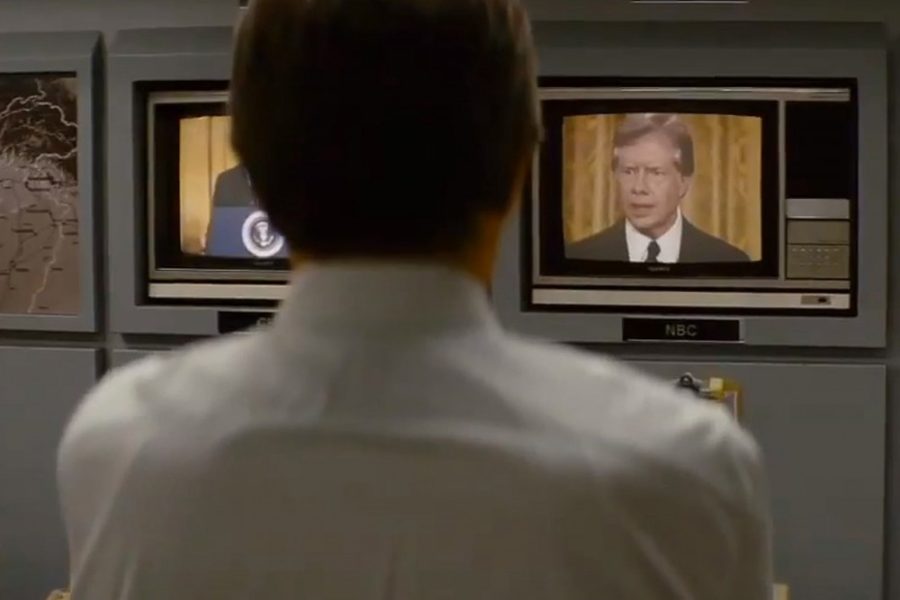With their names and faces in libraries, schools and even the change in our pockets, the influence of the U.S. presidents on history is inescapable. The whole month of February is filled with commemorations of the birth of former presidents, and a separate day has been designated to celebrate all the leaders who have served this country.
All this pomp may be patriotic, but presidents are still human beings like everyone else. They’re bound to be guilty and have a few flaws. Words like associated with presidential scandal like “Watergate” and “Lewinsky” have tarnished the executive branch.
In the book “Failures of the Presidents,” historians Thomas J. Craughwell and M. William Phelps identify some of the lesser-known mistakes made in the Oval Office. Here are five that might make you rethink the justification for celebrating Presidents’ Day:
1) Thomas Jefferson’s Embargo Act of 1807
As Napoleon Bonaparte waged war throughout Europe in the early 1800s, Great Britain grew more hostile toward the revolutionized French nation. As tensions mounted between the two countries, President Thomas Jefferson attempted to keep the U.S. neutral. When naval ports in London and Paris began using American merchant ships as pawns in their game, Jefferson thought of a scheme to disassociate the country from the conflict. The Embargo Act prevented any American vessels from traveling to Europe to conduct trade with the two feuding nations. In the 15 months that it was instated, the act devastated the American economy, but aroused very little attention from across the Atlantic. By the end of Jefferson’s presidency, America’s exports had declined 80 percent.
2) Franklin Pierce’s Repealing the Missouri Compromise
President Franklin Pierce has the distinction of being the only elected president to be denied renomination by his own party. In trying to annex the island of Cuba, Pierce made a deal with a group of Southern senators to repeal the Missouri Compromise of 1850, which prevented the practice of slavery in some northern states. The newly conquered territories of Kansas and Nebraska were now able to choose if they wanted a free or slave state. Pierce’s political dealing reignited hatred between the North and South and served as a catalyst for the conflicts that would eventually turn into the Civil War.
3) Grover Cleveland’s Pullman Strike Scandal
After being victimized by severe layoffs and wage cuts, the employees of Pullman Palace Car Company united in a violent revolt of protest through the streets of Chicago. This local strike inspired the first-ever nationwide protest in America. President Grover Cleveland was never a fan of government interfering in the matters of business, but as reports of violence came in from all over the country, the president had the federal courts deem the act of striking illegal. This resulted in further hostility from the laborers, who responded with greater acts of destruction. On May 27, 1895, the Supreme Court justified the arrest of Eugene Debs, the leader of the Pullman Strike, upholding the government practice of using injunctions to break strikes in Debs v. U.S.
4) Herbert Hoover’s Bonus Army Debacle
With his name forever synonymously attached to the Depression-era shanty towns nicknamed “Hoovervilles,” President Herbert Hoover never seemed to have the favor of the American public. His unwillingness to help 20,000 veterans in 1932 didn’t help his reputation. When Congress passed the Adjusted Compensation Act in 1924, it granted the gift of $500 to each veteran of World War I, though a loophole prevented the recipients from getting their reward until 1945. A massive group of starving, unemployed veterans descended upon Washington, demanding their bonus money. Hoover responded by barricading himself in the White House and ordering the militaristic intervention of troops to remove the veterans from the city. The president spent the rest of his life convinced that the group, nicknamed the Bonus Army, consisted of mostly communists and ex-convicts looking to score some free cash.
5) Jimmy Carter’s Iranian Crisis
When the cancer-stricken shah of Iran, Mohammad Reza Pahlavi, asked for President Jimmy Carter’s permission to enter the United States in 1979, Carter succumbed to his Southern-bred hospitality and granted him access. An angry mob of young Islamic revolutionaries responded to by overthrowing the U.S. Embassy in Iran, as they saw the president’s decision as a betrayal to Ayatollah Ruhollah Khomeini. The rebels took a group of Americans hostage for next 444 days, while Carter ordered a series of failed rescued missions. His inability to appease both sides of the Iranian public cost him his re-election, but at least provided worthy script material for the 2012 Ben Affleck film “Argo.”









